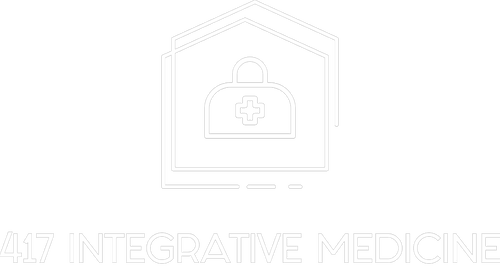Hormone Replacement Therapy With a Functional Medicine Perspective
Hormone Replacement Therapy With a Functional Medicine Perspective

Hormone replacement therapy (HRT) is often viewed as a simple solution for menopause, but a functional medicine perspective reveals a deeper approach. Instead of only replacing hormones, it focuses on the whole picture, lifestyle, nutrition, stress, and underlying imbalances. With support from 417 Integrative Medicine, women can explore treatment options that not only reduce discomfort but also strengthen long-term health.
Understanding the Symptoms of Menopause
Menopause is the time when the ovaries stop releasing eggs and the period stops. This natural shift can lead to uncomfortable symptoms of menopause, such as hot flashes, night sweats, vaginal dryness, and mood changes. These menopausal symptoms are not just surface-level issues—they reflect changes in hormone levels that affect the body in many ways.
A functional medicine approach looks at why these symptoms happen. Poor sleep, stress, nutrition, and health history all influence how the body adjusts as you go through menopause. By identifying root causes, care becomes more than just symptom relief—it becomes a path to lasting balance.
Estrogen, Progesterone, and Hormone Therapy
Hormone therapy for menopause often involves estrogen and progesterone. Estrogen therapy can ease dryness, support bone health, and lower the risk of osteoporosis. Progesterone is added when women still have a uterus, since estrogen-only therapy may increase the risk of uterine cancer.
Different types of HRT exist, from systemic therapy and skin patch options to vaginal cream or cyclic therapy. Bioidentical hormones are sometimes chosen as a compounded hormone option. Each type of estrogen and each dose of estrogen affects the body differently, so guidance is important when choosing a type of treatment.
The Benefits and Risks of HRT
The benefits of HRT are clear for many women; it can treat menopause symptoms like hot flashes, vaginal dryness, and bone loss. The benefits of menopause hormone therapy are often greatest when started at age 60 or within 10 years of menopause.
However, hormone therapy may increase health risks in certain cases. Risks of HRT can include blood clots, high blood pressure, breast cancer, or uterine cancer. Combined hormone therapy may also increase the risk of complications for women with a history of cancer. That’s why cancer screening, family medical history, and overall health history must be part of the decision before you take hormone replacement therapy.
Understanding both the benefits and risks of HRT helps women and their providers decide whether treatment options outweigh the risks.
Types of HRT and Combination Therapy
When thinking about hormone therapy, it helps to know the different forms of HRT available:
- Estrogen-only therapy – often used after a hysterectomy.
- Combined HRT – estrogen and progesterone taken together.
- Combination therapy – a treatment plan that may include cyclic therapy or combined therapy.
- Bioidentical hormones – compounded hormone formulas tailored for individual needs.
Each option for women comes with unique effects of HRT. Whether you take hormone therapy as a pill, skin patch, vaginal cream, or another form of HRT, the choice depends on medical history and personal comfort.
Exploring Alternatives to HRT
Not everyone chooses to take HRT. Alternatives to HRT include nutritional support, lifestyle changes, stress reduction, and natural supplements. These treatment options may help reduce menopausal symptoms while avoiding hormone therapy risks.
Holistic care can support women who want to treat menopause symptoms without increasing the risk of complications. For some, alternatives such as diet changes, exercise, or compounded hormone adjustments provide relief without full reliance on systemic therapy.
Functional Medicine and Individualized Care
At 417 Integrative Medicine, the focus is always on personalized care. No two women experience menopause in the same way, which is why treatment for menopause symptoms must be individualized. Health history, family medical history, cancer screening, and hormone levels are reviewed before creating a plan.
Whether you decide to take estrogen, use combined HRT, or try bioidentical hormones, your therapy is adjusted over time. This ensures that the risks and benefits of HRT are balanced while you move through each stage of menopausal changes.
Finding Balance With Hormone Replacement Therapy
Hormone therapy also brings both relief and responsibility. While HRT may ease menopausal symptoms such as hot flashes, vaginal dryness, and bone loss, it also carries risks that must be carefully considered. The key is finding a safe way to take hormone therapy that reflects your medical history, lifestyle, and goals.
417 Integrative Medicine combines functional medicine with traditional hormone replacement therapy to create plans that fit each woman individually. Whether you’re exploring combination therapy, looking into alternatives to HRT, or thinking about hormone therapy for menopause, the right support makes all the difference.
If you’re ready to learn more about menopause treatment options, connect with the team at 417 Integrative Medicine, and take the next step toward balance, confidence, and long-term health.

417 Integrative Medicine
1335 E Republic Rd D, Springfield, MO 65804
(417) 363-3900
https://www.417integrativemedicine.com/